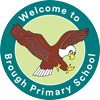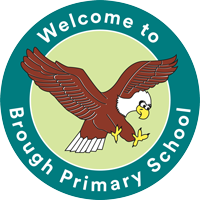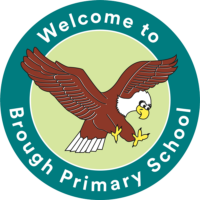At Brough Primary School we make provision for children with Special Educational Needs and/or Disability within each of the four categories defined in the 2015 SEND Code of Practice (para 6.28 – 6.35):
• Communication and Interaction
• Cognition and Learning
• Social, Emotional and Mental Health
• Sensory and/or Physical
It is not uncommon that children may have SEND that falls into one or more of the above categories
Communication and Interaction needs
Children with SEND may need extra help due to a range of different needs. The purpose of identifying the area of need(s) of the child is not to fit them into a category but rather to consider the child’s needs as a whole and help ensure that the school can plan adequate provision.
Children with speech, language and communication needs may have difficulty making sense of language or in communicating their needs and wants to others. Some children may need support developing fluency or forming sounds, words and sentences. They may also have difficulties in social situations as they do not understand the social rules of communication. These needs can change over time and a child may have difficulty with one, some or all of the different aspects of speech, language and social communication.
Children and young people with ASD, including Asperger’s Syndrome and Autism, are likely to have particular difficulties with social interaction. They may also experience difficulties with language, communication and imagination, which can impact on how they relate to others.
How does Brough Primary School support children with Communication and Interaction needs?
The school has a successful Speech and Language support program. Where 1-1 development of speech and language skills is led by teaching assistants who have additional training in Speech and Language and Social Communication. The school has a positive and effective working partnership with our NHS Mainstream Speech Therapists to successfully deliver specific programs of work. If children require it, sign language is taught, and the school encourages all children to learn basic signing. If a child is in need of an assessment by the Speech Therapist, it will be discussed with parents or carers.
Children who have been diagnosed with ASD or diagnosed with social and communication difficulties are supported through our SENCO, Speech and Language Learning Support Assistants and through quality first teaching within the classroom.
At Brough Primary School we have a sensory room and quiet rooms which can be used by all children to develop a variety of skills, but which ultimately enriches the provision for children with sensory impairment such as Autism, ADHD, and EBD.
The rooms have a variety of uses and benefits for all children. They provide relaxation activities, visual, tactile and auditory stimulation through the use of a bubble tubes/ projectors. Language development, anger management, speech therapy, hand/eye co-ordination and gross/fine motor skills can all be developed using the room.
We work closely with our attached Educational Psychologist and other agencies to identify and support children’s learning. Please refer to out SEN Information report for more information.
For more information, please see the SEND Policy and the SEND Information report.
Useful websites
Link to National Autistic Society – www.autism.org.uk – The National Autistic Society website, the main UK charity for supporting people with ASD and their families (contains lots of useful advice and resources)
www.communication4all.co.uk/ – Resources to support Inclusion, EYFS and Visuals
www.attentionautism.com – For more information on Attention Autism and how you can support your child to develop attention and turn-taking skills.
www.widgit.com/resources – Symbolled resources for different topics and areas of life, including resources for fire safety and about visiting the doctors/dentists.
www.autismuk.com – Lots of information on ASD
www.autismspeaks.org – A comprehensive site, with a useful resource library
www.downs-syndrome.org.uk – Advice and support, including booklets to help with independent toileting, sleeping and managing behaviour.
www.oneplaceforspecialneeds.com/main/library_social_stories.html – A useful set of social stories to share with children, covering topics ranging from coping with a new baby in the family to getting a haircut to making friends. The National Autistic Society website also provides guidance on writing your own personalised social stories.


